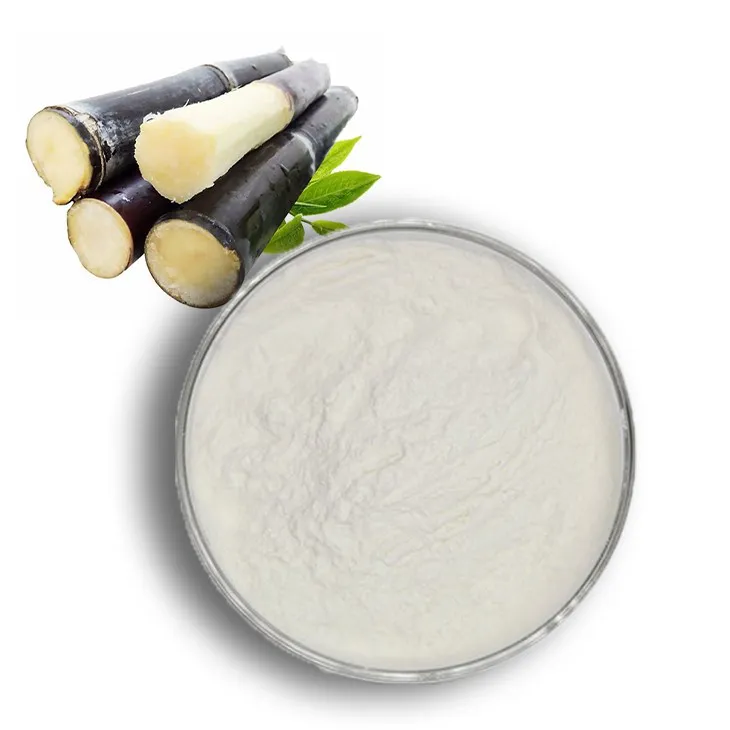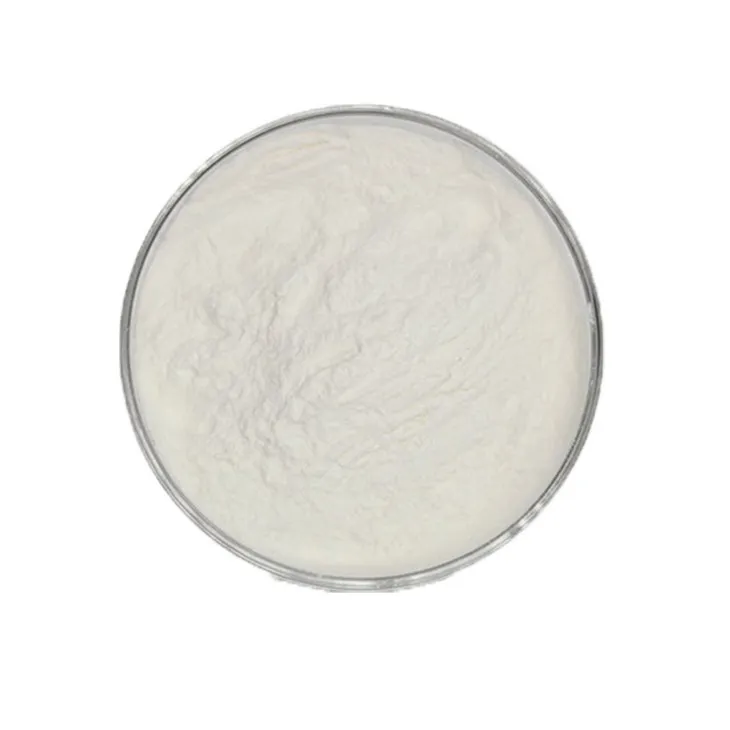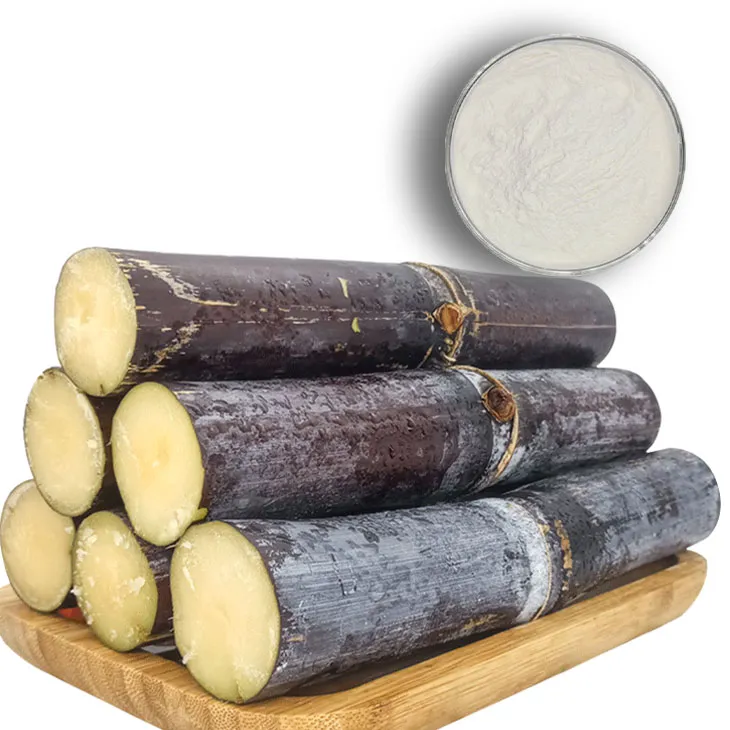- 0086-571-85302990
- sales@greenskybio.com
The flavor of ripe sugarcane and natural sugarcane extracts.
2024-11-13

1. Introduction
Sugarcane is one of the most important and widely cultivated crops around the world. Mature sugarcane has a distinct flavor that is both sweet and refreshing. This flavor has made sugarcane a popular ingredient in various products. In addition to the direct consumption of sugarcane juice, the extraction of natural components from sugarcane has also gained significant importance. Natural Sugarcane Extracts are used in a diverse range of industries, including food, cosmetics, and pharmaceuticals. This article aims to explore the flavor of mature sugarcane and the characteristics and applications of natural Sugarcane Extracts.

2. The flavor of mature sugarcane
The flavor of mature sugarcane is a complex combination of sweetness, freshness, and a subtle earthy note. The sweetness is intense yet not overpowering, with a natural and pure quality that is different from refined sugars. The freshness comes from the high water content in the sugarcane, which gives it a juicy and thirst - quenching taste. The earthy note adds depth to the flavor profile, perhaps a remnant of the soil and environment in which the sugarcane was grown.
When chewing on a piece of mature sugarcane, one can first sense the tough outer layer, which then gives way to the sweet and fibrous interior. The act of chewing releases the juice, which floods the mouth with its delicious flavor. The sweetness lingers on the tongue, leaving a pleasant aftertaste. This unique flavor experience is one of the reasons why sugarcane has been a beloved treat in many cultures for centuries.

3. Obtaining natural Sugarcane Extracts
3.1 Crushing and pressing
The first step in obtaining natural sugarcane extracts is crushing and pressing the sugarcane stalks. Modern methods use large - scale crushers that can efficiently break down the tough outer layer of the sugarcane. Once crushed, the sugarcane is then pressed to extract the juice. This juice contains a high concentration of sucrose, as well as other components such as vitamins, minerals, and phenolic compounds.
3.2 Filtration
After extraction, the sugarcane juice needs to be filtered. This is to remove any solid particles, such as pieces of fiber or soil that may have been present in the juice. Filtration can be done through various means, including mechanical filters and membrane filtration. The result is a clear juice that is ready for further processing.
3.3 Concentration
To obtain a more concentrated form of the sugarcane extract, the filtered juice is then subjected to concentration processes. This can be achieved through evaporation, where the water content in the juice is reduced under controlled conditions. The resulting concentrated extract has a higher proportion of sucrose and other active components, making it suitable for different applications.

4. Applications of natural sugarcane extracts in the food industry
4.1 Sweeteners
One of the most obvious applications of natural sugarcane extracts in the food industry is as a sweetener. The sucrose present in the extract provides a natural source of sweetness. Compared to refined white sugar, natural sugarcane extract sweeteners can offer a more complex flavor profile. They can be used in a variety of products, including baked goods, beverages, and confectionery. For example, in some artisanal ice creams, natural sugarcane extract is used to give a unique and rich sweetness that enhances the overall flavor of the product.
4.2 Flavor enhancers
In addition to being a sweetener, natural sugarcane extracts can also act as flavor enhancers. The subtle flavors and aromas present in the extract can complement other ingredients in a dish or product. For instance, in some savory sauces, a small amount of natural sugarcane extract can be added to balance the acidity and enhance the overall taste. It can also be used in marinades for meats, where it not only adds a touch of sweetness but also helps to tenderize the meat and enhance its flavor.
4.3 Fermentation substrates
Natural sugarcane extracts are also used as fermentation substrates in the production of alcoholic beverages and fermented foods. Yeast can ferment the sucrose in the extract to produce alcohol and carbon dioxide. In the production of rum, for example, sugarcane juice or molasses (a concentrated form of sugarcane extract) is a key ingredient. The fermentation process transforms the sugars in the extract into alcohol, while also contributing to the unique flavor and aroma of the final product.

5. Applications of natural sugarcane extracts in the cosmetics industry
5.1 Skin moisturizers
In the cosmetics industry, natural sugarcane extracts are used in skin moisturizers. The sugars present in the extract can help to attract and retain moisture in the skin. They form a thin layer on the skin's surface, preventing water loss and keeping the skin hydrated. Additionally, the phenolic compounds in the extract may have antioxidant properties, which can help to protect the skin from damage caused by free radicals.
5.2 Hair care products
Natural sugarcane extracts are also found in hair care products. In shampoos and conditioners, the sugars can add shine and smoothness to the hair. They can also help to repair damaged hair by filling in the gaps in the hair shaft. The extract may also have antimicrobial properties, which can be beneficial in preventing scalp infections and maintaining a healthy scalp environment.
6. Comparison between the flavor of mature sugarcane and natural sugarcane extracts
The flavor of mature sugarcane and natural sugarcane extracts share some similarities, but also have distinct differences. The natural sugarcane extract retains some of the sweetness and freshness of the original sugarcane. However, during the extraction and processing, some of the more delicate flavors and aromas may be lost. For example, the earthy note that is present in the flavor of mature sugarcane may be less pronounced in the extract.
On the other hand, the natural sugarcane extract is more concentrated, which means that the sweetness is more intense. This makes it suitable for applications where a strong sweetening effect is desired. In contrast, the flavor of mature sugarcane is more nuanced and complex, with a combination of different taste elements that are experienced simultaneously when consuming the raw cane.
7. Conclusion
In conclusion, mature sugarcane has a wonderful flavor that is both delicious and unique. Natural sugarcane extracts, obtained through a series of processes, have found wide - ranging applications in various industries. While they may not fully replicate the complex flavor of mature sugarcane, they offer their own set of advantages in terms of functionality and usability. As the demand for natural and sustainable ingredients continues to grow, natural sugarcane extracts are likely to play an even more important role in the future, both in terms of flavor enhancement and in providing beneficial properties in different products.
FAQ:
What is the flavor of ripe sugarcane like?
Ripe sugarcane has a sweet, juicy flavor with a slightly grassy undertone. The sweetness is rich and intense, and it has a refreshing quality that makes it enjoyable to chew on.
How are natural sugarcane extracts obtained?
Natural sugarcane extracts are typically obtained through processes such as pressing the sugarcane to extract the juice, and then further refining the juice through methods like filtration and evaporation. Sometimes, additional purification steps may be involved to isolate specific components.
What are the applications of natural sugarcane extracts in the food industry?
In the food industry, natural sugarcane extracts are used as sweeteners, flavor enhancers, and in some cases, for their coloring properties. They can be found in products like candies, soft drinks, and baked goods to add a natural sweetness and a touch of the characteristic sugarcane flavor.
How are natural sugarcane extracts used in the cosmetics industry?
In the cosmetics industry, sugarcane extracts are used for their moisturizing and exfoliating properties. They may be included in products such as body scrubs, lotions, and lip balms. The natural sugars in the extract can help to hydrate the skin, while other components may assist in gently removing dead skin cells.
How does the flavor of natural sugarcane extracts compare to that of ripe sugarcane?
The flavor of natural sugarcane extracts is related to that of ripe sugarcane, but it can be more concentrated in the extract. While ripe sugarcane has a fresh, whole - plant flavor when chewed, the extract may have a more intense sweetness and a more refined flavor profile, as it has been processed to isolate certain elements.
Related literature
- The Chemistry and Flavor of Sugarcane"
- "Natural Extracts from Sugarcane: Production and Applications"
- "Sugarcane Flavor in Food and Cosmetics: A Comprehensive Review"
- ▶ Hesperidin
- ▶ citrus bioflavonoids
- ▶ plant extract
- ▶ lycopene
- ▶ Diosmin
- ▶ Grape seed extract
- ▶ Sea buckthorn Juice Powder
- ▶ Beetroot powder
- ▶ Hops Extract
- ▶ Artichoke Extract
- ▶ Reishi mushroom extract
- ▶ Astaxanthin
- ▶ Green Tea Extract
- ▶ Curcumin Extract
- ▶ Horse Chestnut Extract
- ▶ Other Problems
- ▶ Boswellia Serrata Extract
- ▶ Resveratrol Extract
- ▶ Marigold Extract
- ▶ Grape Leaf Extract
- ▶ blog3
- ▶ blog4
- ▶ blog5
-
Organic Tongkat Ali extract powder factory.
2024-11-13
-
How to make powder with ashwagandha extract.
2024-11-13
-
Rosehip extract manufacturers from China.
2024-11-13
-
The best cat's claw extract in nature.
2024-11-13
-
Chinese Dandelion Leaf Extract Suppliers.
2024-11-13
-
Chaste Berry Extract
2024-11-13
-
Acerola Juice Powder
2024-11-13
-
Phyllanthus Emblica Extract
2024-11-13
-
Wheat Germ Extract
2024-11-13
-
Dan Shen Root Extract/Salvia Root Extract
2024-11-13
-
Mulberry Extract
2024-11-13
-
Polygonum Cuspidatum Extract
2024-11-13
-
American Ginseng Root Extract
2024-11-13
-
Grape Leaf Extract
2024-11-13
-
Beetroot Powder
2024-11-13





















